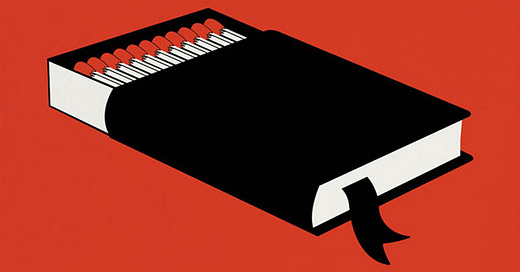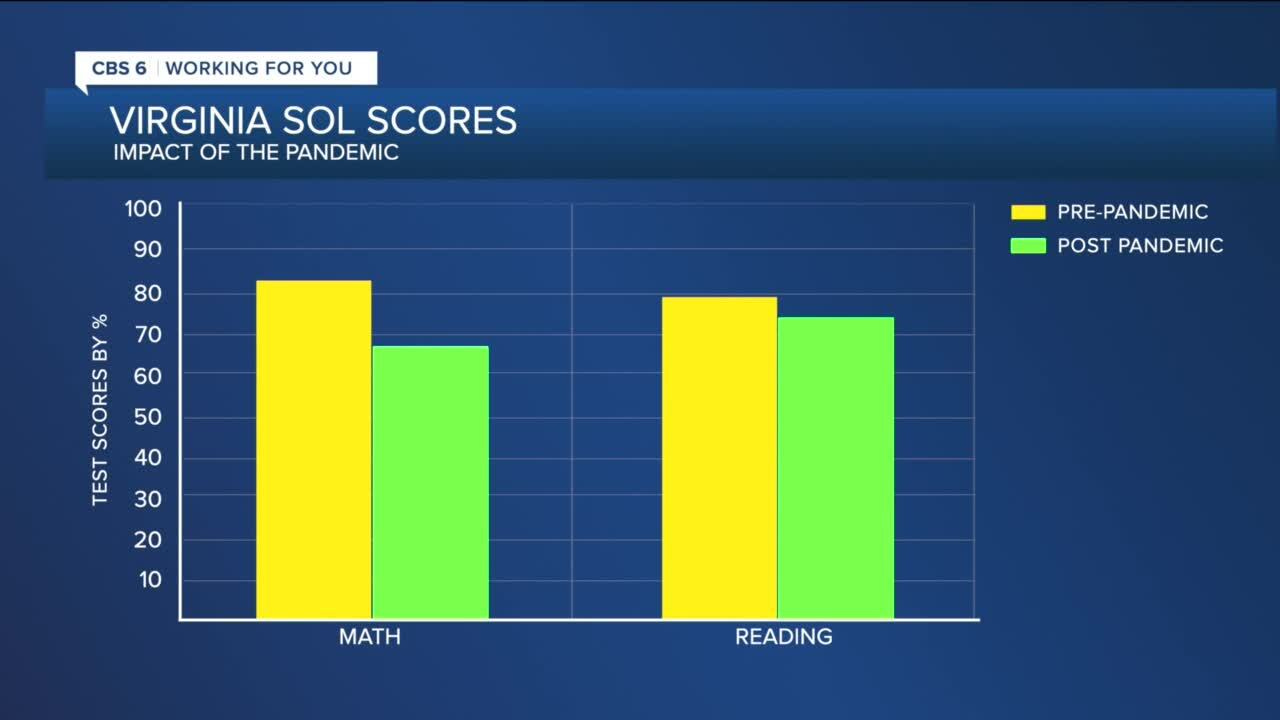Virginia's Education System Is Broken Beyond Repair
If leaders are readers, then what our children are learning (and how they are being taught) isn't preparing them to be either.
"If you don't want a man unhappy politically, don't give him two sides to a question to worry him; give him one. Better yet, give him none. Let him forget there is such a thing as war. If the government is inefficient, top-heavy, and tax-mad, better it be all those than that people worry over it. Peace, Montag. Give the people contests they win by remembering the words to more popular songs or the names of state capitals or how much corn Iowa grew last year. Cram them full of noncombustible data, chock them so damned full of 'facts' they feel stuffed, but absolutely 'brilliant' with information. Then they'll feel they're thinking, they'll get a sense of motion without moving. And they'll be happy, because facts of that sort don't change."
-- Ray Bradbury, "Fahrenheit 451" (1953)
With Virginia SOL results officially in the gutter, now is probably a great time to consider whether or not we are actually a literate culture anymore.
I suspect we all know the answer. Few people can read for literacy; fewer still can write for literacy in a world of 280 characters or less — or txt msg (omg lulz).
In fact, one might go so far as to say that in an era where libraries are being crammed with smut, the discussion over book banning isn’t even a truly honest debate. Look at the books being considered and you’re not going to find Harper Lee or Mark Twain. With notable exceptions, the vast majority of what you will find is ideologically driven drivel designed to wing impressionable minds with what to think and not how to think.
In short, we are staring at a literacy crisis more real and serious than COVID ever was. The good news? The vaccination for stupid is readily available and in tremendous supply.
Allow me to give you a short list of books few college students much less high school students have actually read and understood:
1984 by George Orwell
To Kill a Mockingbird by Harper Lee
Animal Farm by George Orwell
Brave New World by Aldous Huxley
Fahrenheit 451 by Ray Bradbury
The Gulag Archipelago by Alexsandr Solzhenitsyn
Lord of the Flies by William Golding
The Diary of Anne Frank by Anne Frank
Of Mice and Men by John Steinbeck
The Old Man and the Sea by Ernest Hemingway
The Scarlet Letter by Nathaniel Hawthorne
The Catcher in the Rye by J.D. Salinger
The Grapes of Wrath by John Steinbeck
I could include a few more (James Joyce’s Ulysses and David Foster Wallace’s Infinite Jest — both very long books), but I’ll stop with this list here.
Yet even if students claim to have read them, most never really understood them or were asked to understand them with anything remotely anticipating depth.
They repeated what they needed to tell you to produce an outcome — A+. Students were happy with the grades, teachers were happy with the SOLs, administrators were happy with the reports, and parents could fold their arms safely secured that a system which did everything but educate their children said otherwise.
So many people can read. So very few of us are actually literate people. To be literate, one has to engage in literature. Illiteracy is the failure to engage in literature.
The good news is that it would take the average person a good three months to resolve this problem if they committed to reading these over a 13-week period. Just one book a week would give you an entree to the Western canon of literature — not to mention some of the great questions the West grappled with during the 20th century with the rise of fascism and communism.
Yet we don’t read for literacy anymore. Be brief, be brilliant, and begone has replaced the deep consideration of ideas and a love of the written word.
And we wonder what is wrong with America.
If you find yourself one of those who has not read deeply of any of the aforementioned books — or perhaps has simply forgotten their lessons — don’t worry.
You aren’t alone by a mile.
Consider the COVID-19 pandemic and the sorry state of public education:
Statewide during the 2021-2022 school year, 66% of children passed the standardized test for math. That's compared to 82% who passed during the last pre-pandemic year, 2018-2019.
73% of Virginia students passed reading this past year compared to 78% before COVID-19.
"With schools being closed for an extended and unnecessary time, we in fact saw learning loss grow," [Governor Glenn Youngkin] said. “It’s sad to think we have a full generation of students that aren’t fully prepared.”
One in five Virginia students is failing under optimal conditions. That is no metric of success, ladies and gentlemen.
In fact, test scores from the National Assessment of Educational Progress (NAEP) have effectively flatlined since 1992 despite billions upon billions of dollars Americans and Virginians continue to throw at the problem.
Then we have the additional scandal — and it is a scandal, folks — of teaching students up to the test rather than giving them an education.
Enterprising reporters in Virginia would do well to ask students how SOL numbers are fluffed by administrators. Specific examples include segregating out the best and brightest to have them test better in order to subsidize the low-performance scores of their fellow students. Or how poor performance students are drilled to test better because this performance is the only metric of success.
Problem is that public education is a massive jobs provider for many localities, even well-to-do ones such as Fairfax or Henrico or Virginia Beach. Waving the banner of reform in the face of failure means that performance will threaten job security — or more accurately, that administrators presiding over our present failures will discover their services are no longer required.
So the buggy-and-whip industry will circle their wagons, don their red shirts, and scream violence in the face of meaningful reform that might actually benefit the students they claim to teach.
Yet the problem goes a bit deeper than this.
Once upon a time, parents cared deeply about their children’s education — not in the sense that they sent them to the best schools, but rather that they actually invested time in what their children were learning, how they were developing, and engaged them in questions as emerging learners.
Today the script is flipped.
So how do please the customer? By lowering the standards.
Once upon a time, teachers taught. Today they are surrogate parents, counselors, therapists, suppliers of paper and pencils, resource officers, and everything but teachers in the profession and subject they trained for. Toss into the mix state-mandated learning outcomes combined with ideologically minded emphases on Critical Race Theory and gender ideology? No small wonder why teachers as a profession are demoralized and looking to leave public education.
All for the average teacher’s salary of $50,000.
The average administrator’s salary in Virginia? $74,500.
Now there will be a temptation to paint with a broad brush here. Not every teacher is failing our students (though we know plenty who have simply given up and are failing out students). Not every administrator is overpaid and living the dream — I’ve known particularly good ones.
Is the problem the system itself?
Partially — and it could use a certain degree of good ol’ fashioned Schumpeterian creative destruction and the fulfillment of a promise to bring student vouchers to Virginia’s education system.
Yet the fault, dear Brutus, is in our stars. As parents, our children learn by the examples we set in the household. If they come home for two years and come back worse for the experience? Again — no broad brush required. Yet maybe we aren’t doing our jobs and fobbing the responsibility onto the state?
The Code of Virginia is clear that parents — not administrators — are the primary educators of our children.
The Constitution of Virginia guarantees a free and quality education to every student in a spirit of Jeffersonian optimism.
If the system we have created is failing to meet what our state constitution defines as a right then parents have a moral duty — and many of them discovered this in the move to home schooling during the pandemic — to restore those rights to children whose three Rs at present seem to be racism, reductionism, and reparations.
A far cry from reading, writing, and arithmetic.
Shaun Kenney is the editor of The Republican Standard, former chairman of the Board of Supervisors for Fluvanna County, and a former executive director of the Republican Party of Virginia.









